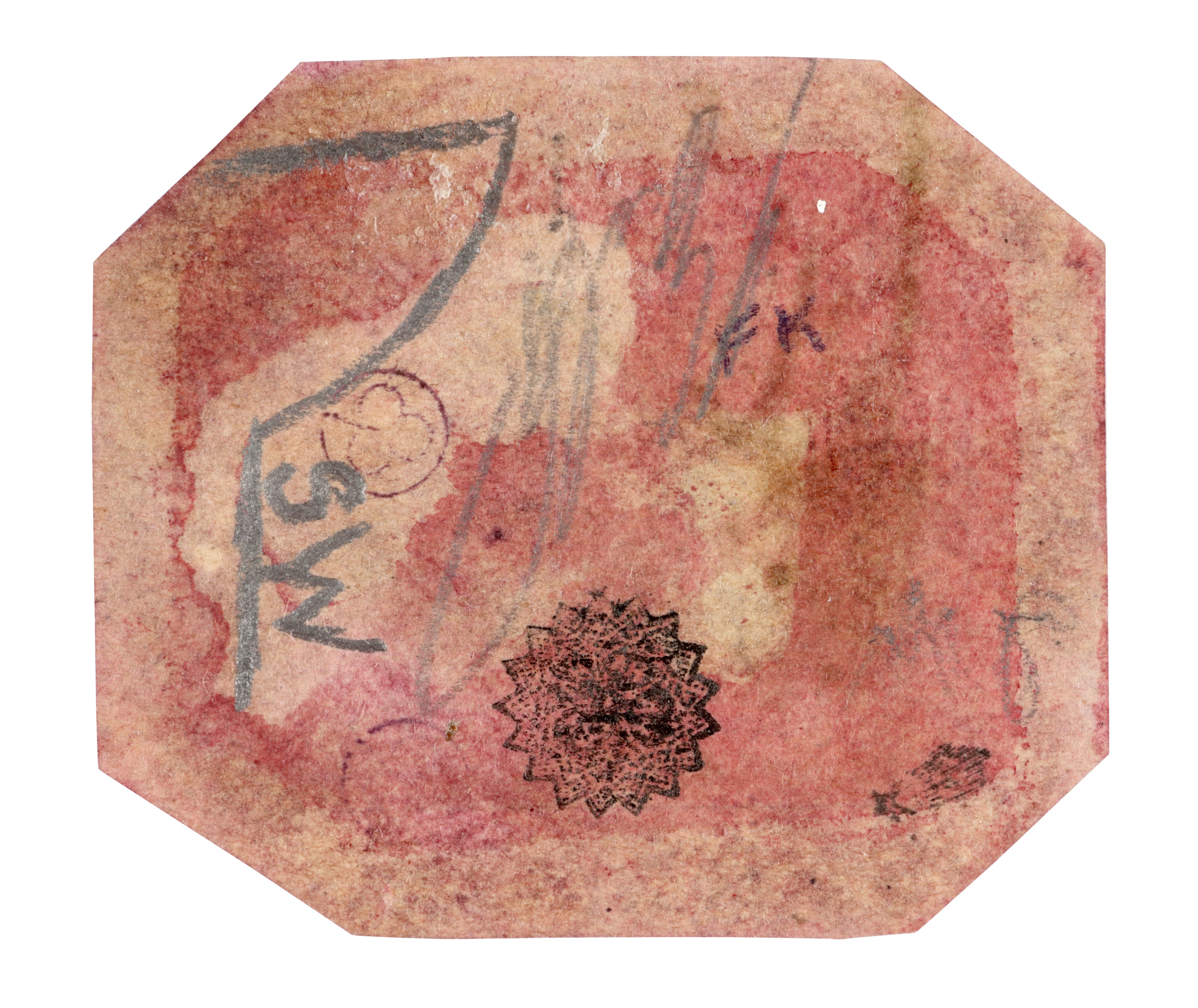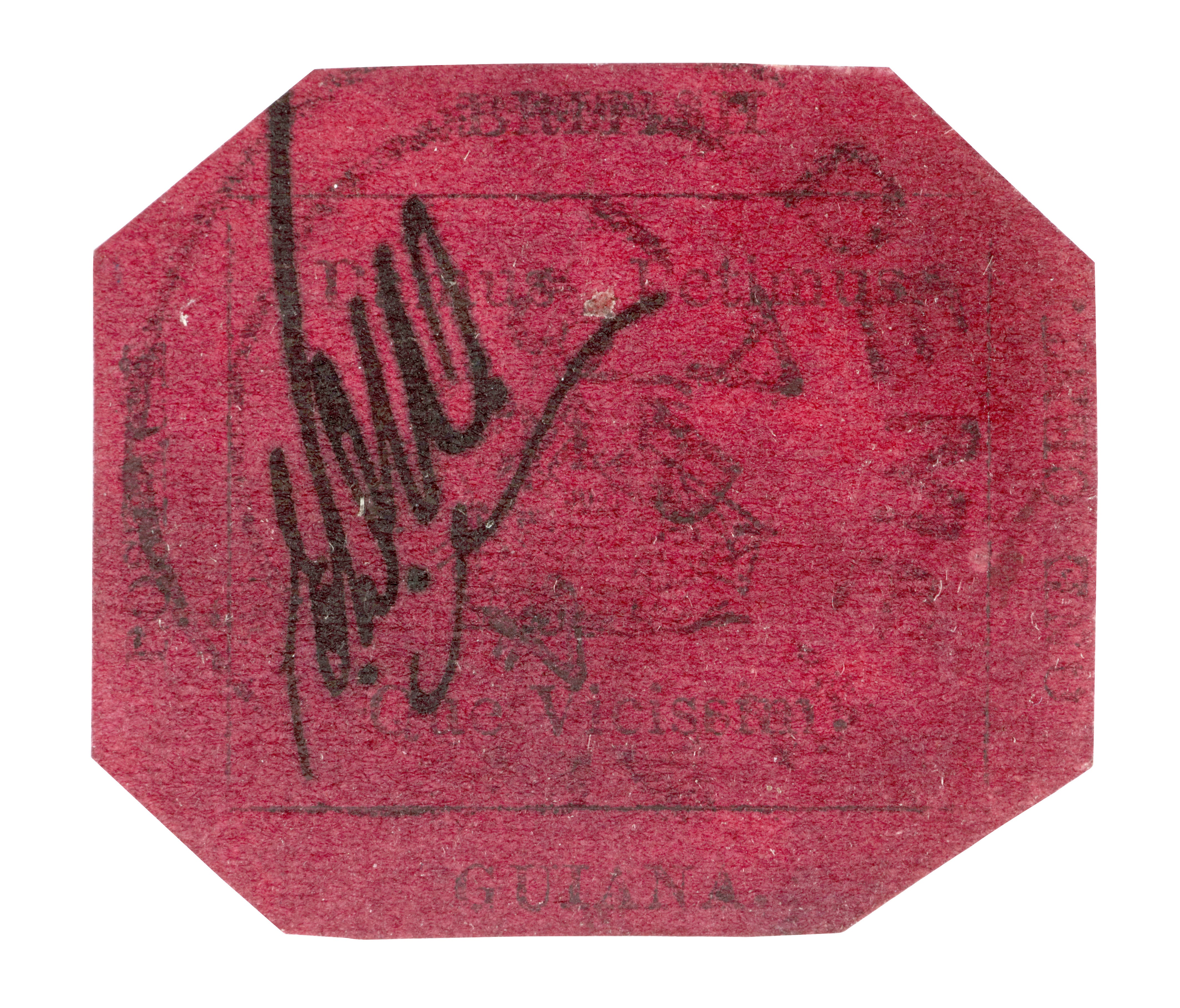The ‘Mona Lisa of stamp world’ is coming to London
The stamp is claimed to be, gram for gram, 2.5 million times more valuable than 24-carat gold

The most valuable and rare stamp in the world is returning to Britain permanently for the first time in 143 years.
The British Guiana 1c Magenta (1856), which has been described as “the Mona Lisa of the stamp world”, was bought for £6.2 million by rare stamp dealers Stanley Gibbons at auction last month.
The stamp has been held in collections around the world, and has broken world records for a single stamp auction price each of the last four times it has been sold.
Now it will go on display at the Stanley Gibbons flagship shop in central London.
The company said that gram for gram, the stamp is around 2.5 million times more valuable than 24-carat gold.
In New York on Wednesday, armed guards were due to collect the 29mm x 26mm sliver of paper from a vault at the headquarters of Sotheby’s auction house.
It was then driven in an armoured van to the airport, and was accompanied by two people on a flight to Heathrow.
It is expected to be driven in an armoured vehicle to the Stanley Gibbons showroom, where it will be stored in a vault before going on display in a specially commissioned, zero-oxygen frame, at no more than 21C.
The octagonal stamp features a three-masted sailing ship. It also has the Latin phrase “Damus Petimus Que Vicissim”, which translates to “we give and expect in return” and served as the motto for British Guiana – now Guyana.
The company Stanley Gibbons said it is drawing up plans to make the stamp available to collectors through a shared ownership type scheme, that will “allow any one to join the club”.

Graham Shircore, chief executive of Stanley Gibbons, said: “The British Guiana 1c Magenta really is the Holy Grail of philately.
“It’s truly one of a kind, and we’re delighted to be welcoming it back on to British soil where we hope it will remain.
“In the coming weeks we look forward to announcing bold plans, which will allow everyone to own their own piece of its marvellous history.
“This isn’t just for wealthy collectors. We are developing a pricing model that will allow anyone to join the club and look forward to announcing more details soon.”
The stamp had been on display at the Smithsonian National Postal Museum in Washington DC, on loan from its former owner, the US shoe designer Stuart Weitzman.
Its previous 12 owners include the French government, and philanthropist John du Pont, whose murder of the US Olympic Gold Medallist David Schultz was the subject of the 2014 movie Foxcatcher after he died in prison in 2010.
The one-cent stamp is the only survivor of a small batch printed in British Guiana, on the northern coast of South America.
It went into circulation in 1856, when a shipment of stamps was delayed from London and the colony’s postmaster asked printers to make three types of temporary stamp until the delivery arrived.
The postmaster then ordered the temporary stamps to be taken out of circulation, but one of the stamps survived.
It was used to deliver a newspaper, then lay forgotten until 1873 when Scottish schoolboy Louis Vernon Vaughan, who lived in the Demerara region of Guyana, found it amongst his uncle’s letters.
He then sold it for six shillings to local collector and barrister Neil Ross McKinnon.
Since 1873, each of the former owners has marked the back of the stamp, starting with Philipp von Ferrary – a French philatelist who is believed to have had the most complete worldwide collection of stamps that has ever existed.
Join our commenting forum
Join thought-provoking conversations, follow other Independent readers and see their replies
Comments
Bookmark popover
Removed from bookmarks